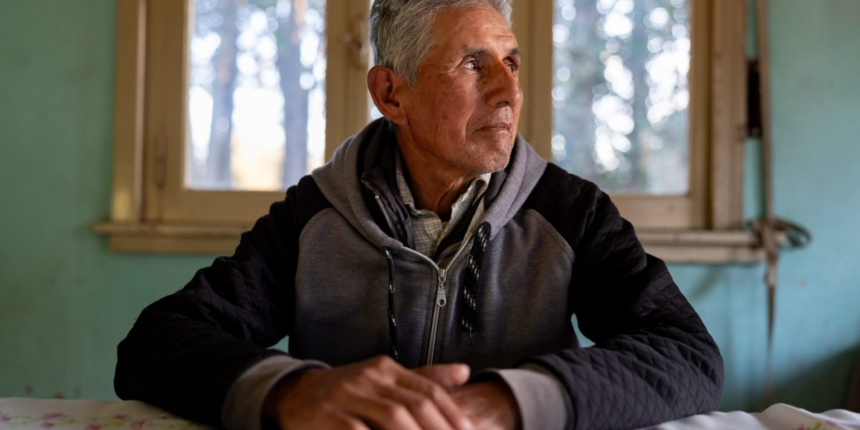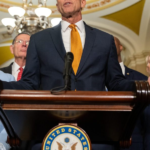Maria worked cleaning schools in Florida for $13 an hour. Every two weeks, she’d get a $900 paycheck from her employer, a contractor. Not much — but enough to cover rent in the house that she and her 11-year-old son share with five families, plus electricity, a cellphone and groceries.
In August, it all ended.
When she showed up at the job one morning, her boss told her that she couldn’t work there anymore. The Trump administration had terminated President Joe Biden’s humanitarian parole program, which provided legal work permits for Cubans, Haitians, Venezuelans as well as Nicaraguans like Maria.
“I feel desperate,’’ said Maria, 48, who requested anonymity to talk about her ordeal because she fears being detained and deported. “I don’t have any money to buy anything. I have $5 in my account. I’m left with nothing.’’
President Donald Trump’s sweeping crackdown on immigration is throwing foreigners like Maria out of work and shaking the American economy and job market. And it’s happening at a time when hiring is already deteriorating amid uncertainty over Trump’s erratic trade policies.
Immigrants do jobs — cleaning houses, picking tomatoes, painting fences — that most native-born Americans won’t, and for less money. But they also bring the technical skills and entrepreneurial energy that have helped make the United States the world’s economic superpower.
Trump is attacking immigration at both ends of spectrum, deporting low-wage laborers and discouraging skilled foreigners from bringing their talents to the United States.
And he is targeting an influx of foreign workers that eased labor shortages and upward pressure on wages and prices at a time when most economists thought that taming inflation would require sky-high interest rates and a recession — a fate the United States escaped in 2023 and 2024.
“Immigrants are good for the economy,” said Lee Branstetter, an economist at Carnegie-Mellon University. “Because we had a lot of immigration over the past five years, an inflationary surge was not as bad as many people expected.”
Goodwin Living, an Alexandria, Virginia nonprofit that provides senior housing, health care and hospice services, had to lay off four employees from Haiti after the Trump administration terminated their work permits. The Haitians had been allowed to work under a humanitarian parole program and had earned promotions at Goodwin.
“That was a very, very difficult day for us,” CEO Rob Liebreich said. “It was really unfortunate to have to say goodbye to them, and we’re still struggling to fill those roles.’’
Liebreich is worried that another 60 immigrant workers could lose their temporary legal right to live and work in the United States. “We need all those hands,’’ he said. “We need all these people.”
Goodwin Living has 1,500 employees, 60% of them from foreign countries. It has struggled to find enough nurses, therapists and maintenance staff. Trump’s immigration crackdown, Liebreich said, is “making it harder.’’
Trump’s immigration ambitions, intended to turn back what he calls an “invasion” at America’s southern border and secure jobs for U.S.-born workers, were once viewed with skepticism because of the money and economic disruption required to reach his goal of deporting 1 million people a year. But legislation that Trump signed into law July 4 — and which Republicans call the One Big Beautiful Bill Act — suddenly made his plans plausible.
And his empowered ICE agents have shown a willingness to move fast and break things — even when their aggression conflicts with other administration goals.
America’s farmers are among the president’s most dependable supporters.
“You got ICE out here, herding these people up,’’ said Boyd, founder of the National Black Farmers Association . “(Trump) says they’re murderers and thieves and drug dealers, all this stuff. But these are people who are in this country doing hard work that many Americans don’t want to do.’’
The Trump administration itself admits that the immigration crackdown is causing labor shortages on the farm that could translate into higher prices at the supermarket.
“The near total cessation of the inflow of illegal aliens combined with the lack of an available legal workforce,’’ the Labor Department said in an Oct. 2 filing the Federal Register, “results in significant disruptions to production costs and (threatens) the stability of domestic food production and prices for U.S consumers.’’
Jed Kolko of the Peterson Institute for International Economics said that job growth is slowing in businesses that rely on immigrants. Construction companies, for instance, have shed 10,000 jobs since May.
“Those are the short-term effects,’’ said Kolko, a Commerce Department official in the Biden administration. “The longer-term effects are more serious because immigrants traditionally have contributed more than their share of patents, innovation, productivity.’’
Especially worrisome to many economists was Trump’s sudden announcement last month that he was raising the fee on H-1B visas, meant to lure hard-to-find skilled foreign workers to the United States, from as little as $215 to $100,000.
“A $100,000 visa fee is not just a bureaucratic cost — it’s a signal,” Dany Bahar, senior fellow at the Center for Global Development, said. “It tells global talent: ‘You are not welcome here.’’’
Some are already packing up.
In Washington D.C., one H-1B visa holder, a Harvard graduate from India who works for a nonprofit helping Africa’s poor, said Trump’s signal to employers is clear: Think twice about hiring H-1B visa holders.
The man, who requested anonymity, is already preparing paperwork to move to the United Kingdom. “The damage is already done, unfortunately,’’ he said.
_____
Wiseman reported from Washington and Salomon from Miami.
AP Writers Fu Ting and Christopher Rugaber in Washington contributed to this report.









